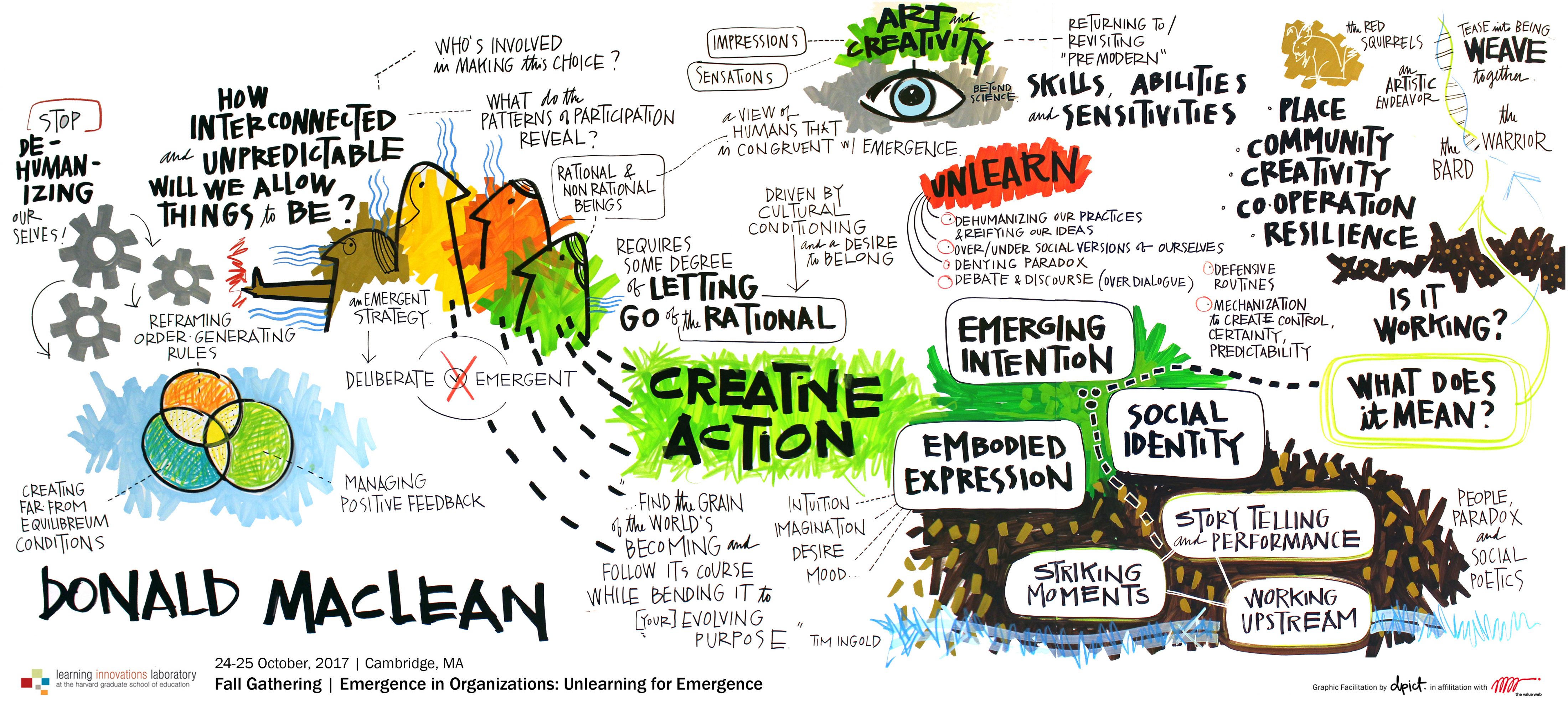 Donald noted that there are three areas that focus on the micro-level of emergence: at the people level.
Donald noted that there are three areas that focus on the micro-level of emergence: at the people level.
- Reframing order-generating rules: This can be business related rules and/or cultural rules.
- Creating far-from-equilibrium conditions
- Managing positive feedback.
These areas are important and fairly tricky because often we get caught in the deliberateness vs emergent debate. Deliberateness is an emergent phenomenon. The more interesting question is how interconnected and unpredictable do we allow things to be? When we desire more connection and new forms to emerge, what is required of the humans involved? Two views on human activities is rationalism (ends-means-conditions) and cultural theory (values, identity). A third way is an creative action– how we are continually engaging and shaping our relationships and our identity.
Creative action points to areas such as emerging intention (how we negotiate them with others), embodied expression (our intuition, ideas), and social identity. This is a poesies approach – a stance that allows new forms to emerge. To navigate this people engage in a variety of practices, such as storytelling and performance. They focus on striking moments. Working upstream rather than focus on down-stream and the past.
To move in this direction, we need to let go over many assumptions and practices. We need to stop dehumanization of practices and ideas. Stop over social and under social versions of ourselves. Move into cultures that are more rooted in place, connected to the community. Focus on creativity and cooperation. The focus is not just one “is this working” but more on “what does it mean to be part of this system?” An interesting metaphor: red squirrels, which are more connected, cooperative (but less efficient) than gray squirrels.
The role of the leader is to find that form which is coming into being, and allow it to become. To discern that which is already happening and allow it to flourish. What we need to cultivate are skills of discernment, intuition, and empathy. I think: it’s not just a problem of orgs, if we look to schools, we’ve created a institution of enculturation that has driven these out systematically as children grow up.
